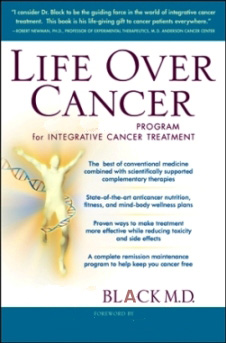The Need for Mood Enhancers
“For so many people, antidepressant medication either stops working or has too many side effects,” says Henry Emmons, MD, a psychiatrist with the Center for Spirituality and Healing at the University of Minnesota. Emmons, author of The Chemistry of Joy: A Three-Step Program for Overcoming Depression through Western Science and Eastern Wisdom, prescribes medications for his patients, but he also highly recommends exercise and good nutrition as physical treatments for depression, combined with a few targeted mood supplements.
Which leads to the question: what vitamins, herbs, supplements, and lifestyle changes are the best mood enhancers?
The experts we talked to didn’t reach complete consensus; more research is clearly needed for the plentiful options available. But here is a brief overview of some of the more common complementary approaches used to treat mood problems.
Of course, if you suffer from severe mood problems see a doctor -- before you reach for mood enhancers or supplements
Mood Supplements with Potential
One of the most touted herbs used for enhancing mood is St. John’s wort, a yellow-flowered plant containing many chemical compounds.
“Even though the evidence is mixed, it’s better for St. John’s wort than for other herbs,” says Adriane Fugh-Berman, MD, associate professor, Complementary and Alternative Medicine Master’s Program, Department of Physiology and Biophysics at Georgetown University School of Medicine. Fugh-Berman says that trials in the U.S. have been oddly less positive than in Germany, where it is widely prescribed.
SAMe (S-Adenosyl-L-Methionine), derived from an amino acid and also available from protein food sources, is another widely studied mood-enhancing substance that’s commonly used in Europe, Fugh-Berman tells WebMD.
Though the data is less solid, other potential mood enhancers include:
- Valerian: an herbal remedy created from dried roots, often taken as a sleep aid and sometimes used for anxiety.
- Lavender:aromatherapy, essential oils, and teas use lavender to enhance relaxation and possibly help relieve anxiety and depression.
- Omega-3 fatty acids: found in cold-water fish and certain vegetable oils, and available as a supplement, omega-3 fatty acids are sometimes used to help depression. Emmons recommends a dose of 2,000 to 4,000 milligrams or more when taken for mood problems.
- B vitamins: essential for cell metabolism and central nervous system maintenance. Emmons recommends a good B-complex or multivitamin to ensure plenty of B vitamins, which can help stabilize nerve cell membranes.
- Vitamin D: although not enough evidence exists to make any claims about the effectiveness of vitamin D as a mood enhancer, at least one study reported benefits from vitamin D in treating seasonal affective disorder, a form of depression that occurs during the winter months.


